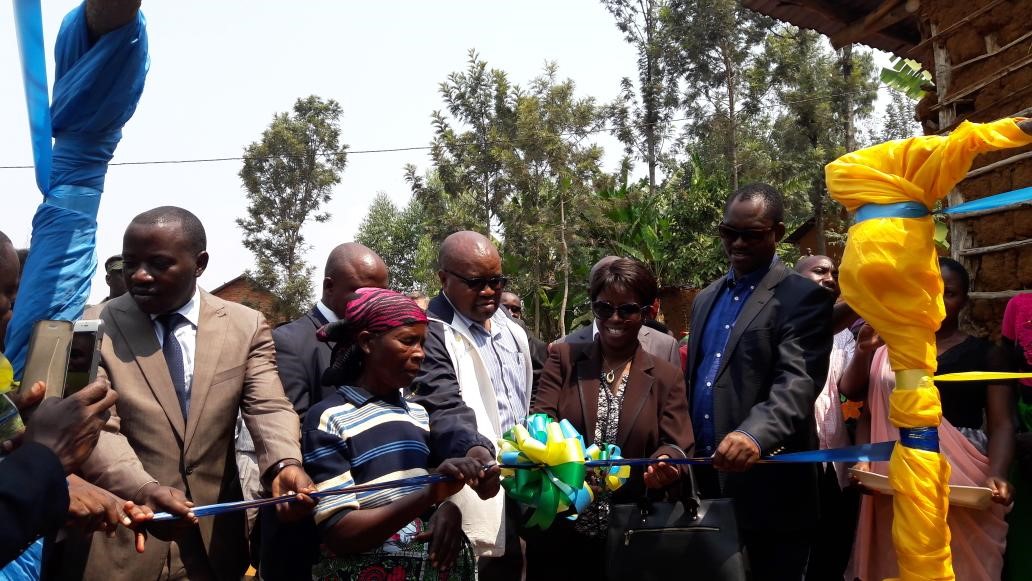Rusizi, 12th July 2017- The Minister of State in charge of Water and Energy officiated the launch of Nkombo Water Supply Project for the benefit of about 18000 people living in Nkombo Island, Rusizi District.
According to Hon. KAMAYIRESE, the Rwf 550-million Water Supply System will help improve sanitation services in Rusizi District as access to clean water and sanitation services remains Government’s top priority. “The goal is to achieve 100 per cent access to clean water from the current 85 per cent by 2020 to be able to realise the Government objectives,” she said.
Areas with low access to clean water are prone to waterborne diseases such as cholera,the Minister said, stressing that ensuring that all citizens have access to clean water is critical and will help promote sustainable development.
The Minister said the Government seeks to improve the quality of life of its population by provision of adequate water and sanitation services for all by 2020.
James SANO, the Chief Executive Officer of Water and Sanitation Corporation (WASAC), said increasing access to clean water is within the framework of achieving the clean water distribution targets in communities to support inclusive growth.
“We will continue focusing on those areas prone to dry spells and ensure all citizens have access to clean and safe water,” he said. WASAC and Rusizi District’s Management will continue to work together to ensure increased household connection in Nkombo Island to improve the service delivery and reliability.
Previously, access to clean water in Nkombo Island stood below 50 per cent. However, with the new water treatment plant, which produces 720m3 per day, designed for 2030 horizon and 24 boreholes, the island’s access to water is expected to increase to 90 per cent. 100% access remains a focus to be reached with construction of new water distribution networks.
The Nkombo water supply system is currently providing clean water to around 18000 people and we expect the number to increase.
Nkombo residents said the new water supply system (water treatment plant its forwarding infrastructure and the boreholes) will help reduce the long distance citizens used to walk to fetch water, as well as the risk of acquiring waterborne diseases that would result from using non clean water from unimproved sources such Lake Kivu.
Research done for the 2006 UN Human Development Report estimated that the total cost of the current deficit in investment in water and sanitation is $170 billion, which means 2.6 per cent of all developing countries’ GDP.
While it is important to invest in water and sanitation services, it is equally imperative to ensure the sector is well regulated and monitored for desired benefits.

 ENGL
ENGL KINY
KINY